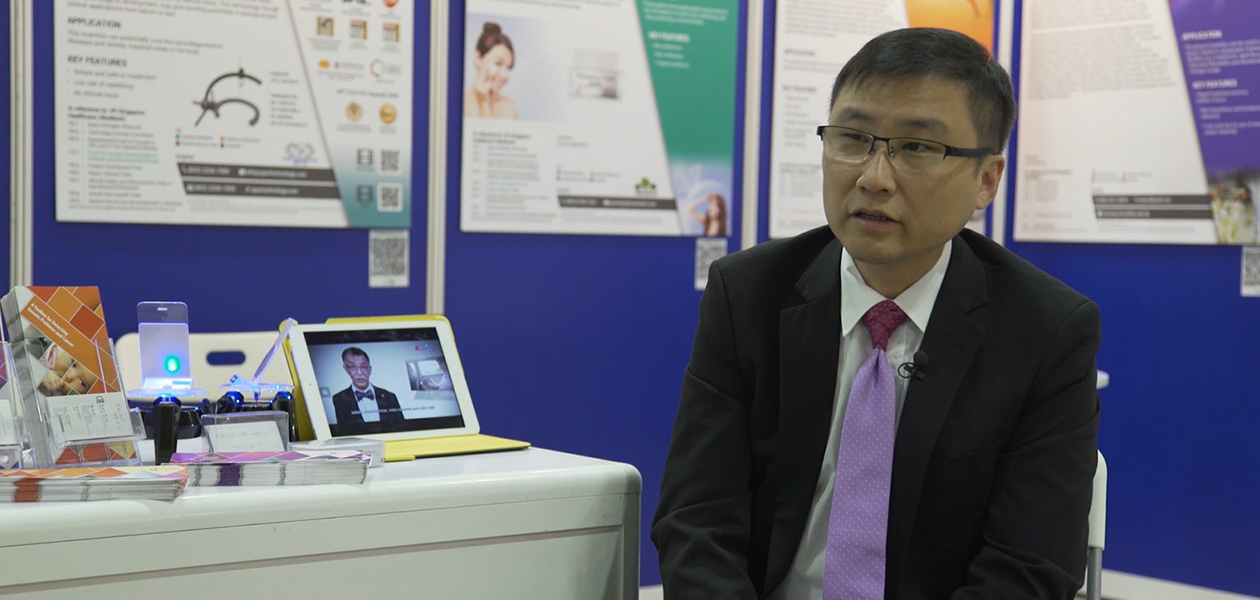A gateway to the Greater Bay Area
Through its competitive funding schemes and professional support, the Hong Kong Baptist University's Knowledge Transfer Office spurs open innovation in China's Greater Bay Area.
In a world where information is just a click away, innovative ideas can spring forth from just about anywhere—from universities to companies, no matter how big or small. Open innovation acknowledges this, highlighting the essential role that external collaboration fulfills.
While universities and companies may strive to adopt open innovation’s unique approach, finding and successfully working with external collaborators is easier said than done. Luckily, for interested parties based in the China Greater Bay Area’s vibrant innovation ecosystem, the Hong Kong Baptist University (HKBU)’s Knowledge Transfer Office (KTO) stands ready to guide them through the tricky, yet exciting, path of taking a product to the market.
With its extensive network of partners, wide array of upskilling programmes and competitive funding schemes, the KTO supports open innovation from start to finish. In this interview with IPI, Dr Alfred Tan, head of the KTO, details the office’s key capabilities and shares how companies can partner with the KTO to achieve open innovation.
1. Please describe the role of the KTO at HKBU and its key capabilities.
Since its founding in the academic year 2009-10, KTO has enhanced its institutional capacity and promoted knowledge transfer. Aside from knowledge transfer, our responsibilities include: technology transfer, entrepreneurship and contract service or consultancy related matters. Our strengths are in our excellent relations both within the university and with prestigious global partners. Our broad knowledge of intellectual property (IP) protection has helped many start-up companies.
2. How does the KTO approach open innovation?
KTO has schemes for students and staff. Our Matching Proof-of-Concept Fund (MPCF) aims to help academic staff demonstrate the industrial potential of their inventions and technologies. Moreover, KTO works with experts to develop skills like pitching, design thinking and IP training among the University’s staff and students. KTO also organises networking events and recruits student ambassadors to facilitate knowledge exchange between staff, students, industrial partners and investors.
In 2019, KTO established the Business Entrepreneurship Support and Training (BEST) community to support the technology transfer ecosystem. The community includes HKBU alumni, international universities like Oxford and MIT, industry partners, venture capitals and our partners in the China Greater Bay Area.
3. Can you share some examples of how collaborating with the KTO has benefited companies?
With KTO’s support, Physics Professor Cheah Kok Wai and his company, Cathay Photonics Limited received several awards including a gold medal in the ‘Industrial Processes’ category at the 44th International Exhibition of Inventions in Geneva. HKBU was the first-ever Hong Kong university to be awarded the highest recognition award, the Grand Prix.
In another example, one of our professors at HKBU has invented a fast and accurate patented technology for non-invasive detection of early prostate cancer. The patent rights have been transferred to an HKBU spin-off company called New Life Medicine Technology Company Ltd. (NLMT), which has received an investment from a listed pharmaceutical company in Hong Kong and has established a presence in a healthcare technology park in the China Greater Bay Area.
We also enabled a subsidiary of NLMT to tap into the Greater Bay Area market by establishing its R&D and manufacturing line in the region. Through KTO’s connections, Sky Blue Biomedical Equipment Ltd. (Sky Blue) was the first company to be awarded funding from the Health Technology Park in Zhongshan. Sky Blue will use the funding to commercialise the aforementioned prostate cancer early detection kit.
4. What kinds of potential collaborators and companies are you hoping to work with?
In the coming decade, the University will invest heavily in three research clusters: creative media/practice, health and drug discovery, and data analytics and artificial intelligence. A comprehensive action plan has been launched to foster world-class interdisciplinary research. KTO hopes to work with passionate companies and investors in the ecosystem. We hope our partnerships or collaborations can add value to stakeholders that meets their unmet needs; while improving our research and its impacts.
5. How can companies start collaborating with the KTO?
Companies interested in HKBU’s inventions, entrepreneurship and knowledge transfer or technology transfer projects are encouraged to visit our website, where they can download our technology teasers and search our patents. These materials will provide a better understanding of our quality programmes and innovative research, and highlight the ways we facilitate the development of research for social benefit. We welcome companies interested in knowing more about technology transfer via the KTO and we look forward to receiving your comments and enquiries.

